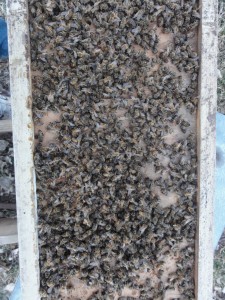What to do if you find that you have no flying bees and/or your colony did not survive winter. Stay in beekeeping! We urge you not to give up. Experienced beekeepers have losses, too.
Monthly Archives: February 2015
Kansas City’s Urban Grown Farm Tours
Cultivate Kansas City’s biennial Urban Grown Tour is slated for June 27-28, 2015 to showcase the good food that is growing our city’s neighborhoods and will celebrate 10 years of growth sin ce the first tour in 2005!
ce the first tour in 2005!
In the excitement leading up to our own Cultivate Kansas City’s Urban Grown Farms & Gardens Tour this June 27-28, 2015, I’d like to post this information on:
Urban Garden Beekeeping
Urban gardens are great locations for keeping honeybees as they increase the opportunity for the number of beneficial garden pollinators. They also provide and additional source of local whole food.
Small-scale urban beekeeping contributes to the protection of our vital ecosystem. Keeping bees in an urban garden setting is a small but hugely significant way for a community garden to contribute to the diversity, health, and sustainability of our food growing system. It’s a huge way for a small group of people to make a difference on a big environmental issue. If your community garden wants to host honeybees, you can either (1) Arrange with a local beekeeper to place and maintain a hive or two in the garden, or (2) Start a hive to be maintained by the gardeners themselves.
If you are considering beekeeping for your community garden, may I suggest the following guidelines for starting a honeybee hive:
- Maintain good relations within the garden and with the surrounding neighborhood.
- Research any beekeeping ordinance that might apply to your garden.
- Meet the owner of the property where your garden is located in order to get approval to place a hive there.
- Determine if your garden is a good place for a beehive
- Decide the best place to put the hive in the community garden.
One or more gardeners should be selected to manage the beehives in the community garden. They are responsible for making sure the hive is maintained properly and for removing the hive, if necessary. When in doubt, review other Municipalities as a guideline. Some are actually pretty good.
Below is a link to the City of Overland Park, Kansas, which is where I am from. It’s not the best but it is pretty good. There is a requirement for water for bees, which should stipulate that water should be supplied from March thru October.
http://www.opkansas.org/city-government/overland-park-municipal-code/
TITLE 06 – Animals


